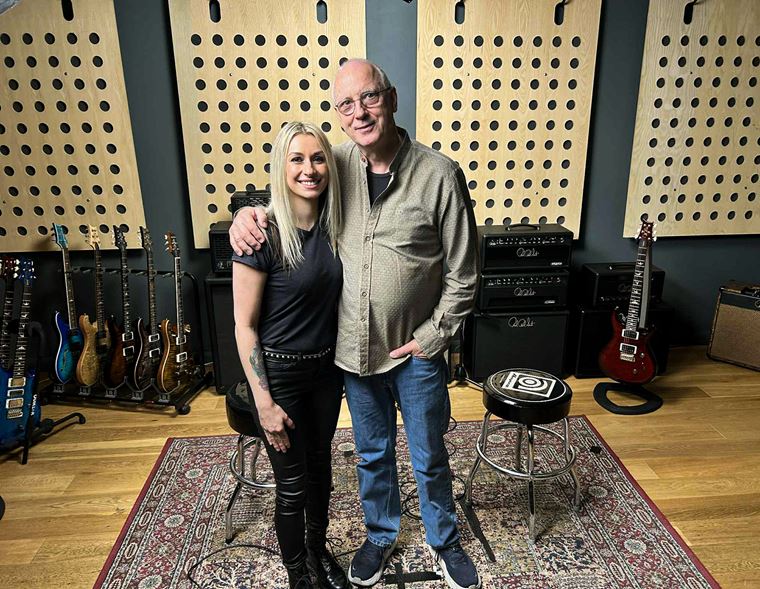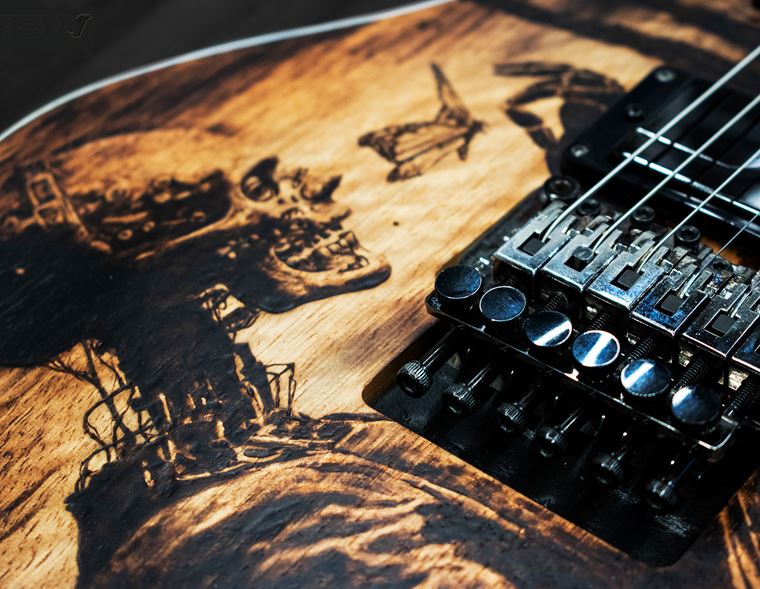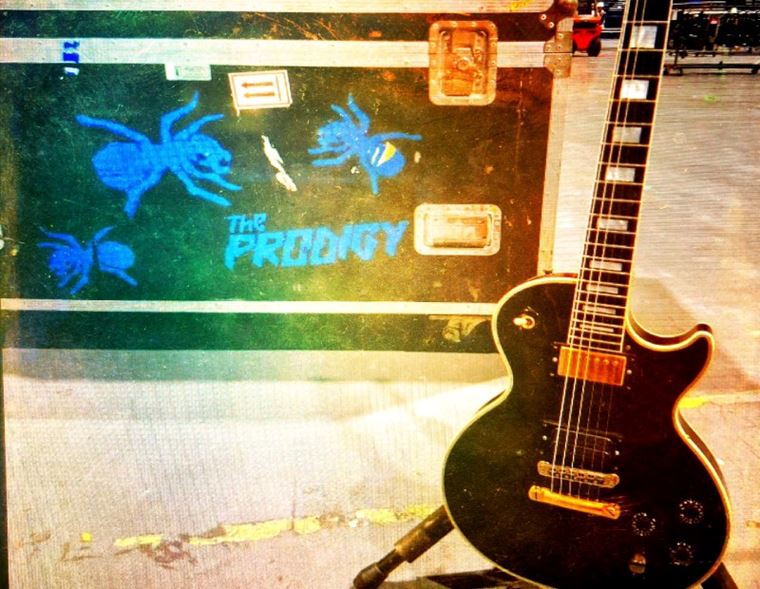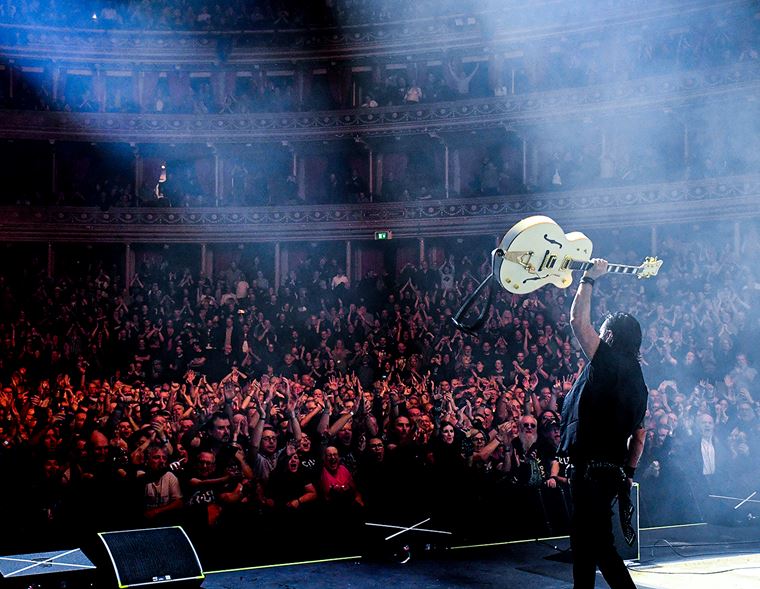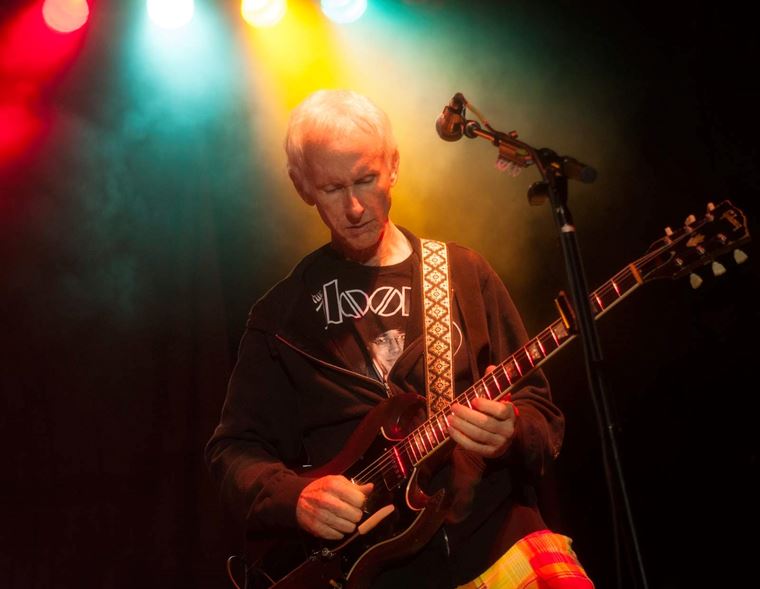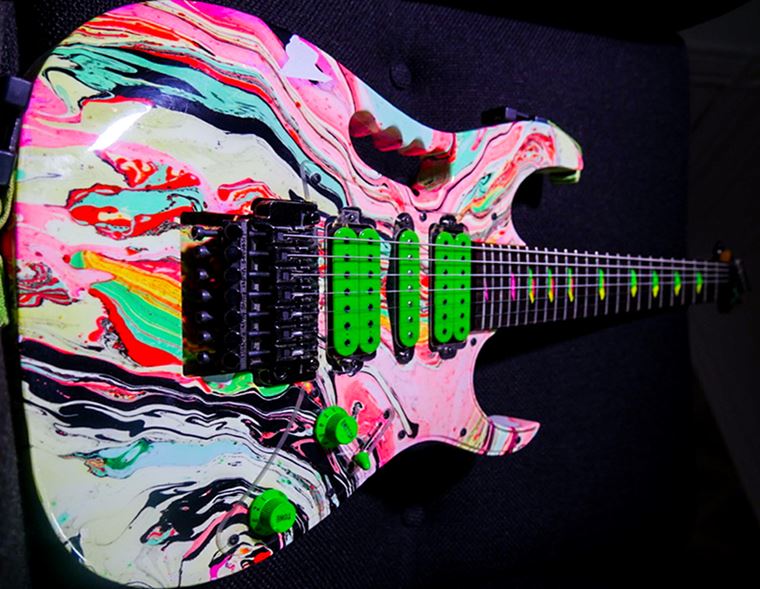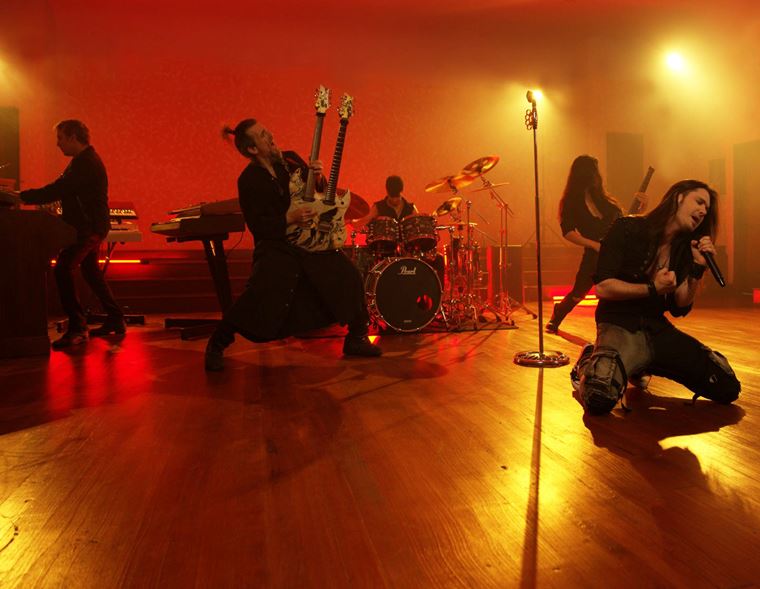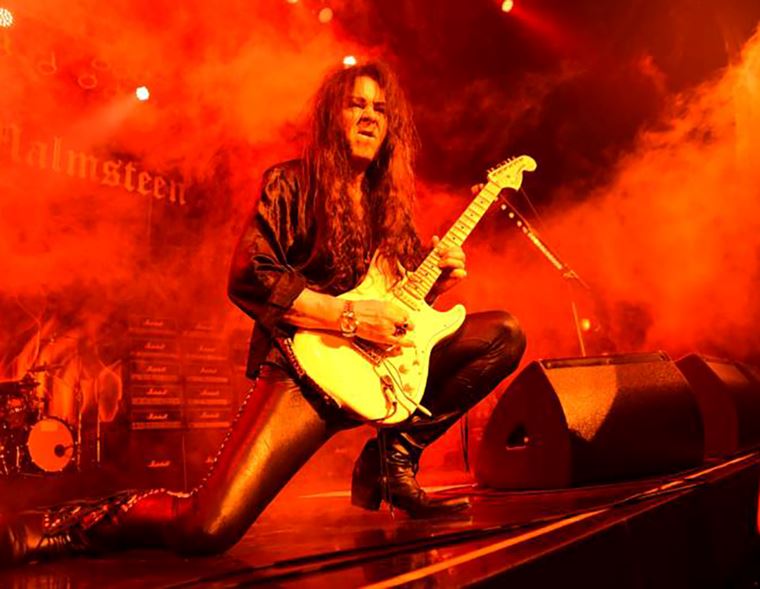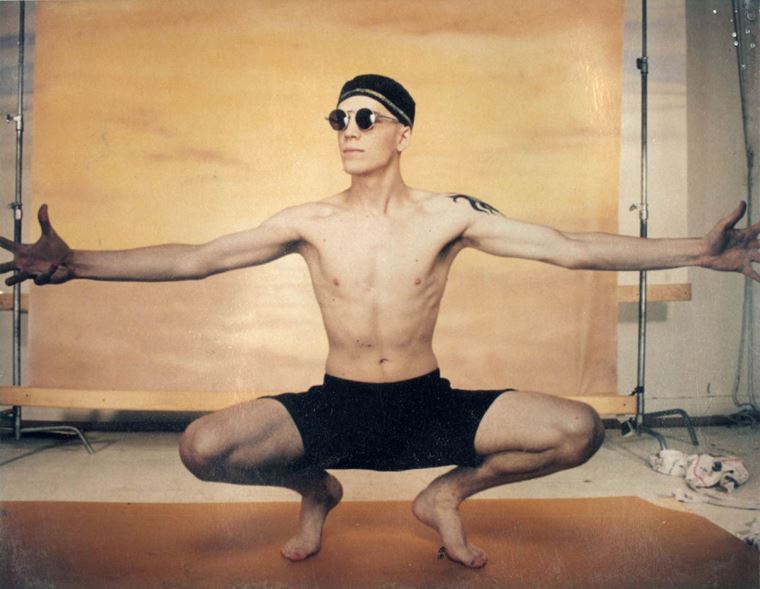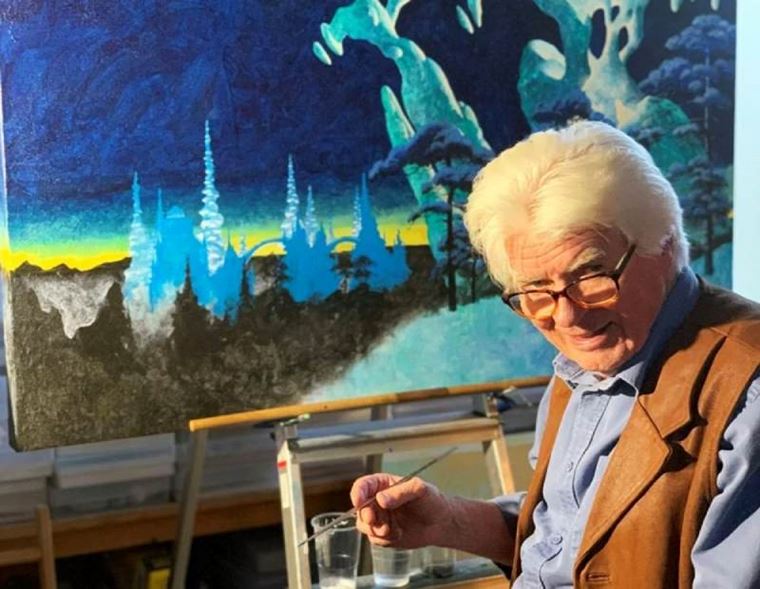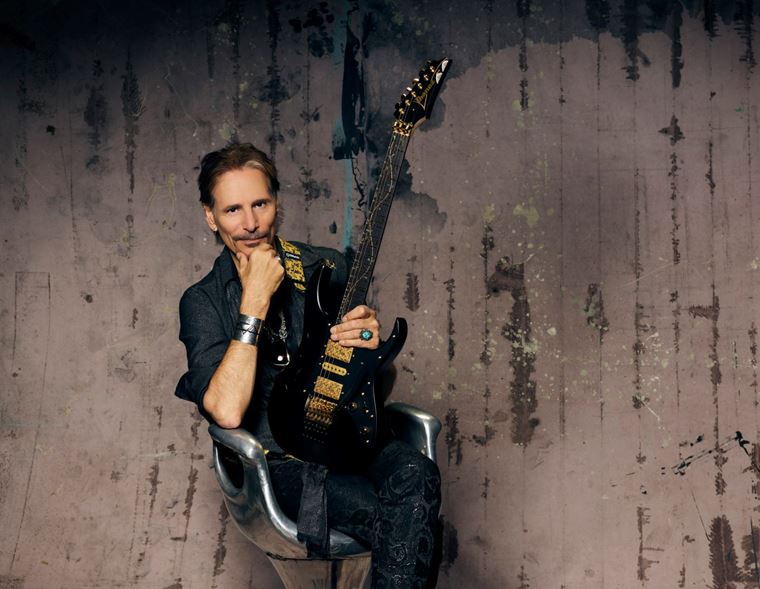DIRE STRAITS Continue the Legacy! EXCLUSIVE Interview
Brothers in Arms. Money For Nothing. Romeo and Juliet. The Walk of Life. Private Investigations. This list could go on for quite a while. The point is, all of us, no matter our age or musical tastes, know a ton of Dire Straits songs, and the thing they all have in common is that they are fantastic. Like Queen, AC/DC and The Rolling Stones, Dire Straits are one of those bands that everyone just loves.
Though they never formally called it a day, decades has passed without new material form the band as a unit. Leader Mark Knopfler has of course been busy tending to his solo career, but the rest of the band obviously got tired of waiting for a reunion. Instead, they’ve formed Dire Straits Legacy, a band that features many original, long-serving members, along with a few other specially selected musicians to fill the roles of Knopfler and others.
One original member onboard is Alan Clark, keyboardist and co-writer. Clark has been a significant participant in every Dire Straits studio album and every tour, so he’s an important and influential contributor indeed. You can see him here at Live Aid, rocking the keys to one of the biggest audiences there has ever been...
Dire Straits Legacy play in London on January 15th, and the band’s star power has been increased by the addition of no less a talent than Trevor Horn, the ex-Buggle, ex-Yes member super-producer extraordinaire for acts like Simple minds, the Pet Shop Boys and John Legend. Horn is playing bass and adding backing vocals, and it’s just one of the many things we touch on in this exclusive interview with Alan!
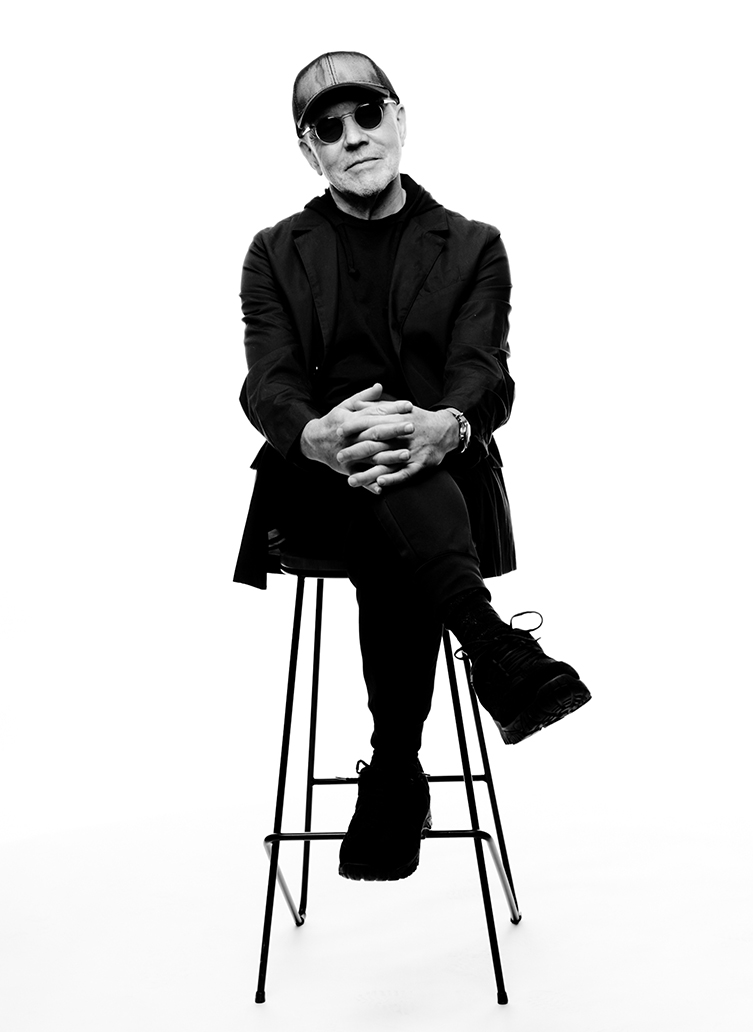
Guitarguitar: Dire Straits has one of the most beloved back catalogues in all of music. How did you decide on a setlist for this forthcoming show?
Alan Clark: Well, it’s pretty easy really, because we just pick all of the hits (laughs), then add one of two other songs that weren’t hits in there. There are basically songs there that you can’t leave out, like Walk of Life and lots of stuff. But yeah, it’s pretty easy to pick a list that’s gonna take up an hour and a half of stage time.
GG: Yeah, that back catalogue is bit of a gift for both performer and audience, isn’t it?
AC: Sure, yeah!
GG: So, do you have any particular favourites of your own? Maybe ones that you had more of a particular hand in back in the day that you’re looking forward to revisiting?
AC: Well, I like them all, but when I’m asked which is my favourite Dire Straits track, I usually think it’s got to be Private Investigations. It’s just a great track to play, and the Dire Straits Legacy usually open up with that as the first track. It’s unusual, because it’s a low-key, slow tempo song, but it makes for an very interesting way to draw in the audience, and it ends with a big bang, so it’s an interesting way to start the show.
GG: Definitely, that’s an interesting point. In terms of the material, everybody knows a few Dire Straits songs: are you keeping the performances relatively close to how the recorded versions are?
AC: Yes, but we allow them to evolve. Most of the musicians in this band played the songs in various times of Dire Straits’ existence. During Dire Straits, the songs evolved anyway, and I usually played quite a big part in that, because it was usually my ideas to tag something on the front or stick an instrumental here, or whatever. So, quite often, back in the day when Mark and I got together, the songs would be 3 or 4 minutes long. By the time we were finished, they would be 6 minutes long! We’d sort of come up various ways of making them longer, basically! (laughs) Particularly on the live versions, because we used to rehearse quite comprehensively before we went out on the road.
Do you know, that was almost the most enjoyable bit! Mark said the same thing to me: he said that if he had to say which was the most enjoyable part of the entire process, it was rehearsing. Particularly, rehearsing for live shows because anything goes, really, when you’re on stage. So, we still let the songs evolve in that way. I mean, a lot of the time, I can’t particularly remember the way I played them back in 1983 or something, so I play them the way I play them now. I remember being in Italy with this band some time ago and my keyboard tech, who is a keyboard player himself, knew the Dire Straits catalogue fairly intently. I was playing a song – I can’t remember which one – and he came up to me afterwards and said, ‘Hey! That’s not right!’ I said, ‘Listen: if I play it, it’s right!’ (laughs)
GG: Hahaha, yeah, quite right! Now, we are a bunch of gearheads over here at guitarguitar, and I’m interested in which keyboards you’ll be taking out with you?
AC: I keep it very simple! I use a Yamaha Motif, which I use for the main piano sound and all the sounds on that. I have a Hammond B-3 and I use a little vocoder, a Roland, which I use to add additional vocals now and again, or use it as an effect, occasionally. Primi (Primiano DiBiase) who is our second keyboard player, he has an array of modern keyboards which I guess, emulate the sounds we need to recreate on stage. I keep it fairly simple.
GG: So, you can get through most of what you need with just the Yamaha Motif?
AC: Yeah!
'My keyboard tech, who is a keyboard player himself, knew the Dire Straits catalogue fairly intently. I was playing a song – I can’t remember which one – and he came up to me afterwards and said, ‘Hey! That’s not right!’ I said, ‘Listen: if I play it, it’s right!’'
GG: Out of interest, because I know you’re a skilled pianist, do you use a hammer-action model?
AC: Oh yes! Oh yes (laughs).
GG: Some players who carry around old, classic equipment maybe do it for more romantic reasons than sonic or practical ones. The stuff that’s around today is doing the job just as well.
AC: Well, you can’t beat the old stuff. I’m sitting here looking at my Prophet 5, which I had re-done just a few weeks ago. It’s been dead for years! That’s one of the reasons people don’t use old equipment, because they die eventually. I spent a small fortune on having my Prophet 5 refurbished and it’s immaculate, it sounds exactly like it used to. But, you know, they were a bit of a pain in those days because they went out of tune, and you didn’t have MIDI, you know, in the early 80s, so you had to have several hands, really, or jump around like Rick Wakeman from one keyboard to the other.
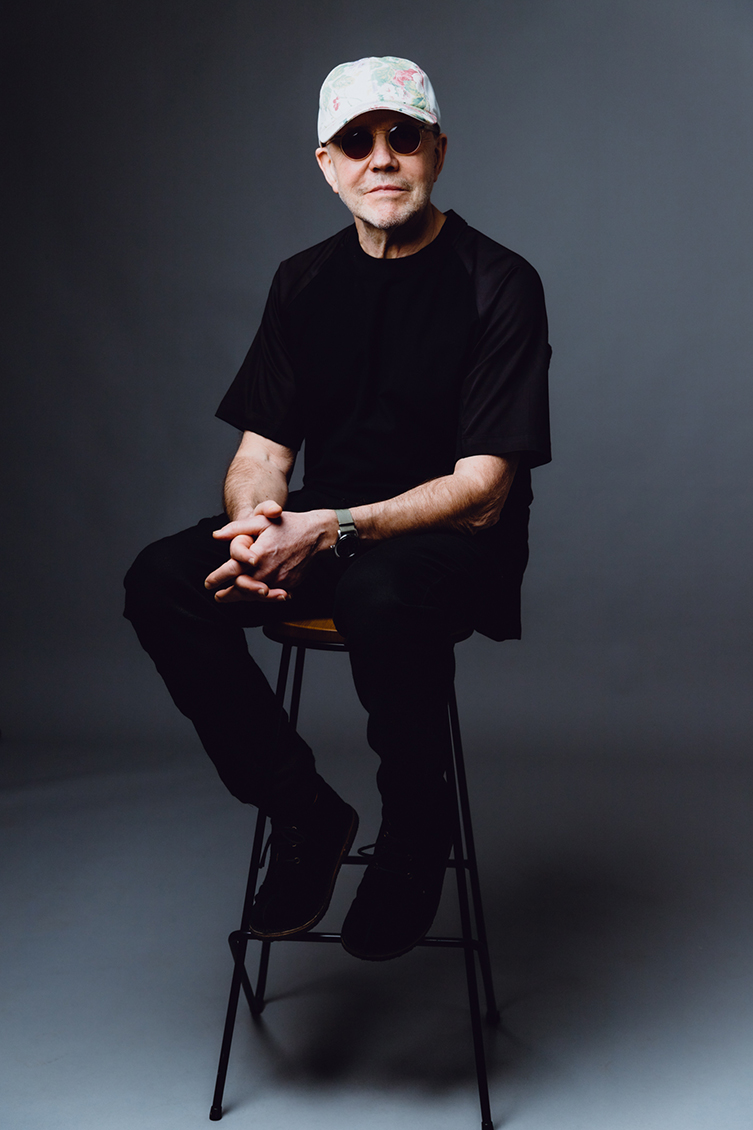
You can kind of get away with one or two keyboards now, because of MIDI and because of samples. By the time you have a sample of a Prophet 5, and it comes out of the PA system, it doesn’t make much difference, really. The same with pianos: it’s great to have a real piano on stage, but man it’s such a pain! (laughs)
GG: Haha, I can imagine! As you say, after the PA gets involved, and the physics of being in a room, it’s probably close enough for an audience to be fine with it.
AC: Exactly!
GG: You brought out that solo record recently with the beautiful re-interpretations of some Dire Straits favourites. Do you have a moment during the Dire Straits Legacy performances where you do a solo piano section?
AC: Not as such, no, but there are times where I guess I break into solo things (laughs). Often right at the end we usually do something. The final song that we play, I quite often do a piano thing that’s just me. It’s kind of a nice way to end the show, really.
GG: It brings people down from the high.
AC: Yeah, and by then the audience have been on their feet and they all rush up to the stage and kind of standing round, so it’s a nice intimate atmosphere.
'Trevor Horn heard about it and said, ‘I’d like to be in that band!’
GG: Absolutely! Now, Trevor Horn is involved this time. You guys have worked together previously, haven’t you?
AC: We have! Strangely enough, Trevor and I were born in the same part of Country Durham about three miles apart. I only met him about four years ago! I’ve been aware of hm and he’s been aware of me but our paths never crossed. But yeah, I’ve been working quite a lot with Trevor on various projects since then, basically.
GG: Yea, and how did he get involved with Dire Straits Legacy Was he just available and a good choice?
AC: He heard about it and said, ‘I’d like to be in that band!’ (laughs) Trevor started his musical career as a bass player in his father’s dance band. Then of course, he became a record producer and didn’t get the opportunity to play much bass, so he wanted to get back to playing some serious music on the bass and asked to join our band. We said, ‘Oh, okay then!’
GG: Yeah, when Trevor Horn asks to join your band, if you’ve got a space for him, it’s probably a good idea to just let him in, isn’t it?
AC: I think it’s true that we made a space for him!
GG: And also, being that Mark isn’t a part of this, the vocals are shared between a few people. Are there three vocalists in the band?
AC: There are, but most of the Mark Knopfler vocals are done by Marco (Marco Caviglia), who we call our ‘authority on Dire Straits’ (laughs) because Marco knows every note that Mark Knopfler has ever played in his career. I can say to Marco, ‘Do you know that guitar part that Mark plays in Brothers in Arms?’ And he’d say, ‘Which version? Do you mean the 1986 version or the one he started playing later in 1986? Or the one form the On Every Street tour?’ As I say, the music evolves, and Mark’s parts evolved. Marco will know just about every evolution of Mark’s guitar playing and every note that Mark plays. He does an excellent job of playing them on stage. He also does the vocals.
GG: Fantastic! That’s a real coup, having somebody as skilled as that. So he handles most of the lead vocals, and the backing vocals are spread out across other people?
AC: Exactly, yeah. And I pitch in occasionally with my vocoder.
GG: Is it like a keyboard with the vocoder function built in? Like the VP-770?
"Mark (Knopfler) said to me that if he had to say which was the most enjoyable part of the entire process, it was rehearsing."
AC: It’s one of the tiny miniature versions. It’s a VP-03. I’m looking at it right now. It’s part of their mini series, I’ve got a couple of them, they’re really good.
GG: Yeah, the Boutique range.
AC: It’s really handy! It’s got a particular sound, and I’ve used it on several records as effect sin the background and things. It seems to be more sensitive than other vocoders because it’s entirely digital, so it’s pretty good.
GG: So does that mean that your backing vocals, even though they are vocoder-ed, won’t sound like robots?
AC: Well, one of the things it does is it keeps them in tune! (laughs) My vocals can be notoriously out of tune! This kind of herds them all together.
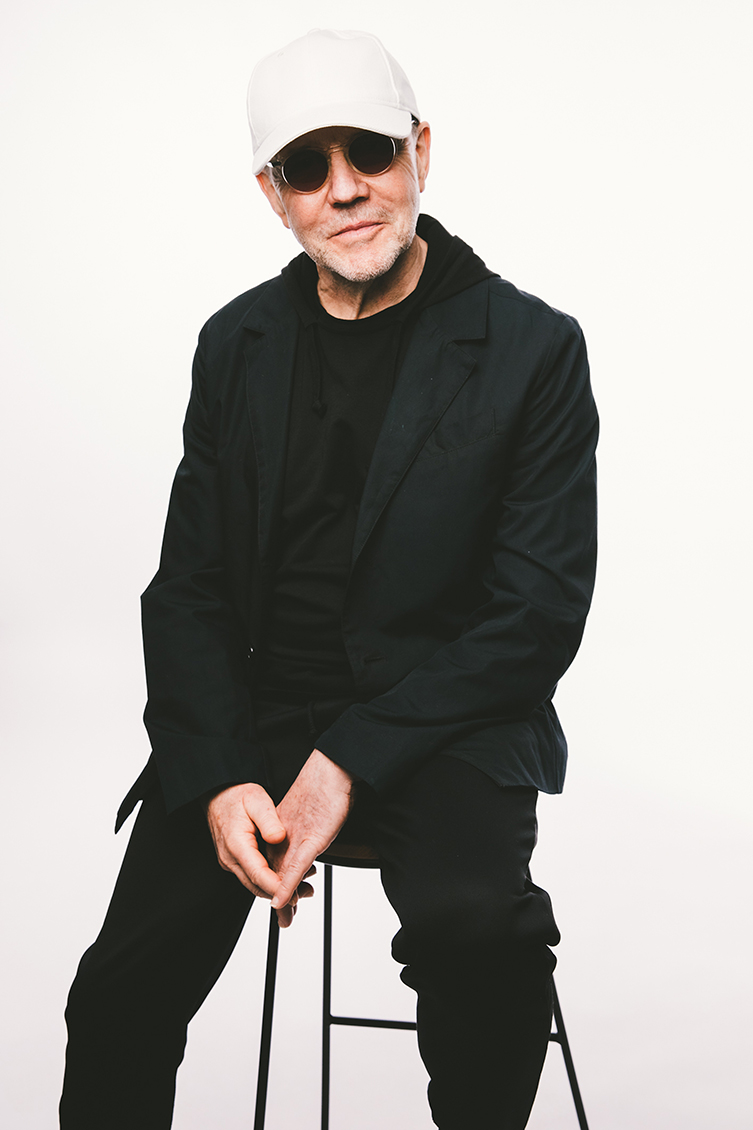
GG: Okay, cool! So, Dire Straits Legacy are playing the London Indigo on the 15th January, and I know you had previous touring plans that have been stalled and changed because of covid, are there tentative ambitions to do more touring after the London show?
AC: Absolutely! We’re planning on doing more gigs in the UK, so bear that in mind! Pretty much immediately after the London gig, we are due to go to Brazil. That’s been postponed from last year and the year before that because of covid. Then, at the beginning of March, we’re doing a rock cruise that sails out of Miami and sails round the Caribbean and we have various other speculative gigs being pencilled in as we speak!
GG: Excellent! So lots to come, hopefully.
AC: Yeah! Same as everybody else: you’ve got to be really careful about planning stuff, because we’re still catching up from postponed gigs from two years ago, as everyone else is!
GG: It’s like a bottleneck for venues right now.
AC: Absolutely.
GG: I could do with a Caribbean sunset listening to some Dire Straits being played live for sure! So, just to round things off, it’s one of those obvious questions but I hope you’ll indulge me. How does it feel to be a significant part of such a enduringly influential body of work that’s loved across the world?
AC: A great honour, I have to say.
And with that, Alan had to move on to his next interview. Busy man! It was a real pleasure to converse with such an experienced and yet unpretentious musician, someone who has been a long-serving member of such a huge band. Dire Straits Legacy will hopefully be playing somewhere near you soon: keep an eye on the Dire Straits Legacy website for up-to-date details about forthcoming shows.
We’d like to thank Alan for chatting to us, and to Sascha for putting us in touch. Thanks, as always, to yourself for clicking through and spending some time reading this interview! We have a great many more over on our guitarguitar Interview pages, so head there to read more about Steve Hackett, Joe Bonamassa and Steven Wilson, amongst a great many others!
Until next time
Ray McClelland


